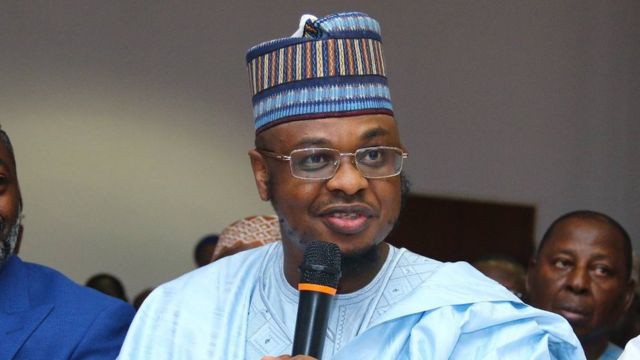The Federal Government has revealed plans to make Nigeria a leading digital economy through its National Policy and Digital Economy Projects (NDEPS).
This was disclosed by the Ministry of Communications and Digital Economy on Twitter on Wednesday.
The tweet disclosed that the ministry was set to launch Batch 10 of its National Policy and Digital Economy Projects (NDEPS), an event that is scheduled to hold virtually on Thursday, 27 May 2021.
Through the NDEPS, the Federal Government will be launching the Emergency Communications Centre, Akure, Ondo State; Digital Economy Centre, Delta State University Abraka, Delta State; National Policy on Virtual Engagements in the Federal Public Institutions; Digital Economy Centre, Government Secondary School Rigasa (Main), Kaduna State; and Digital Economy Centre, Federal University Gashua, Yobe State.
The ministry tweeted, “The Ministry of Communications and Digital Economy is set to launch Batch 10 of National Policy and Digital Economy Projects for a Digital Nigeria.
“The National Digital Economy Policy and Strategy (NDEPS) is aimed at transforming Nigeria into a leading digital economy, capable of providing quality life and digital economies for all.
“Its mission is to build a nation where digital innovation and entrepreneurship are used to create value and prosperity for all.
“Recall that the Minister had on April 23, 2021, commissioned seven completed projects for digital economy under batch 9 of the commissioning initiative.
“This followed batch 8 and other batches that preceded it during which completed projects were also commissioned.”
READ ALSO: Nigeria Needs To Industrialise To Protect Supply Chains
Contribution of Digital Economy
In alignment with the Federal Government’s goal of diversifying Nigeria’s economy, the National Digital Economy Policy and Strategy (NDEPS) was created to serve as a platform on which Nigeria achieves its goal, as the government has realised the potential of the ICT sector.
President Muhammadu Buhari, in a statement at the Opening Ceremony of the 2019 e-Nigeria Conference,
Exhibition and Awards described the platform as moving from a “luxury to an absolute necessity”.
Citing figures from the stables of the Nigeria Bureau of Statistics (NBS), the president noted the “impressive” contribution of the Information and Communications Technology sector to the country’s Gross Domestic Product (GDP), contributing 13.85 percent.
A 2016 report by Oxford Economics stated that the global digital economy had a value of $11.5 trillion, representing 15.5 percent of the global economy.












